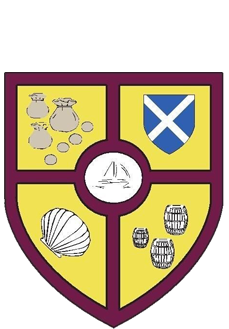'Train up a child in the way he should go; even when he is old he will not depart from it.' Proverbs 22:6
Computing
Intent
We believe that Computing is an essential part of the curriculum; a subject that not only stands alone but is woven and should be an integral part of all learning. Computing, in general, is a significant part of everyone’s daily life and children should be at the forefront of new technology, with a thirst for learning what is out there. Computing within schools can therefore provide a wealth of learning opportunities and transferrable skills explicitly within the Computing lesson and helps children to understand how the world around them works.
Implementation
Through the study of Computing, children will be able to develop a wide range of fundamental skills, knowledge and understanding that will equip them for the rest of their lives. From improving hand-eye coordination during their Digital Arts projects in Reception and KS1 to saving, and retrieving work in order to present to an audience. Computers and technology are such a part of everyday life that our children would be at a disadvantage would they not be exposed to a thorough and robust Computing curriculum. Children must be taught in the art form of ‘Computational Thinking’ in order to provide them essential knowledge that will enable them to participate effectively and safely in the digital world beyond the school gates. Using the National Curriculum as a guide for our Computing Curriculum, we have matched units to ensure that children are able to learn new skills whilst having fun creating and challenging themselves.
In Key Stage 1 the children will learn to understand what algorithms are; how they are implemented as programs on digital devices; and that programs execute by following precise and unambiguous instructions. They will be taught to create and debug simple programs and use logical reasoning to predict the behaviour of simple programs. They will be shown how to use a range of technology purposefully to create, organise, store, manipulate and retrieve digital content as well as recognise common uses of information technology beyond school. They will be taught to use technology safely and respectfully, keeping personal information private; identify where to go for help and support when they have concerns about content or contact on the internet or other online technologies. Each of these skills will be taught through exciting half termly units.
In Key Stage 2 the children will design, write and debug programs that accomplish specific goals, including controlling or simulating physical systems; solve problems by decomposing them into smaller parts. They will use sequence, selection, and repetition in programs, use logical reasoning to explain how some simple algorithms work and correct errors in algorithms and programs. Children will be taught to understand computer networks, including the internet, and the opportunities they offer for communication and collaboration. They will use search technologies effectively, learn to appreciate how results are selected and ranked, and be discerning in evaluating digital content. Children will be taught to select, use and combine a variety of software (including internet services) on a range of digital devices to create a range of programs, systems and content that accomplish given goals. They will use technology safely, respectfully and responsibly; recognise acceptable/unacceptable behaviour; identify a range of ways to report concerns about content and contact.
Using our specialised curriculum, which has been designed to enable children to learn new skills and as they progress across they Year groups, they’ll have an opportunity to further enhance their skills. Example, in Year 3, children learn to film and edit films to create a news report before revisiting these skills in Year 5 to create an information video using the same software and equipment. In Year 5, children learn how to create websites using a professional platform before developing their skills by creating a web app for a real audience.
In Upper Key Stage 2, children are encouraged to personalise their projects. They are taught the skills required to create a product before being given the freedom to apply these skills in a format that they choose; always thinking about how these skills could be applied in real life context (Vlogs, YouTube, websites etc). Children in both Key Stages will be exposed to regular online safety lessons as they explore the world around them and how technology is an everyday part of their learning and understanding of the world.
Impact
The innovative practice in this curriculum provides a strong foundation and opportunities for children to collaborate and develop social skills both indoors and out. Enjoyment of the curriculum promotes achievement, confidence and good behaviour. Children feel safe to try new things and embrace mistakes as opportunities to learn something new. This curriculum focuses on applications and software that’s easily accessible at home to ensure that used in this curriculum that learning continues beyond the classroom. Using professional software such as Wix, Garage Band, iMovie and Microsoft packages helps children see the link between their school work and potential career paths.
After the implementation of this creative curriculum, children will be digitally literate and able to join the rest of the world on its digital platform. They will be equipped, not only with the skills and knowledge to use technology effectively and for their own benefit, but more importantly – safely. Children have opportunities to share their learning with each other, their parents and carers and other learners through school-based and external exhibitions, performances, competitions and events involving other schools. Developing their independence and motivation as learners and their sense of responsibility as future citizens is at the heart of all our teaching and learning.
Policy
Curriculum Overview
Online Safety

